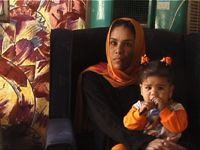EU suffers lack of consistency on granting refugees asylum

EU sees lack of consistency in its asylum policy, with refugees assured of acceptance in some countries and absolutely not in other, the U.N. refugee agency said Tuesday.
A U.N. report on asylum policies in Europe said "tremendous differences in law and practice remain" despite the need for a common policy.
"Having a common EU asylum policy, harmonizing the law and practice in 27 member states, is a groundbreaking endeavor," said Judith Kumin, the U.N. High Commissioner for Refugees' regional representative in Brussels.
"But there will not be a common asylum policy unless there is a standardized level of protection throughout Europe," she said.
The issue of asylum has come to a fore in the past two years because of the massive influx of Iraqis to Europe. Iraqis comprise the largest number of refugees on the continent, accounting for about a fifth of asylum seekers in Europe.
Refugees' chances of gaining asylum "vary dramatically" across the EU - from zero percent approval in one country to 70 percent in another, said the report based on 1,488 case studies conducted in Sweden, Germany, Greece, Slovakia and France.
The situation is best in Sweden, it said. France, Germany and Slovakia also have improved their adherence to the common European asylum policy.
But in Greece, which many asylum seekers use as a transit point to other EU nations, all 305 cases studied by the U.N. ended in rejection, the report said.
According to current EU rules, the member state that is the refugee's first point of entry to the EU is responsible for processing the claims. If they move on, the refugees will be deported back to the receiving country.
The 27-nation bloc is due to modify its joint system by 2010 and alleviate the pressure on southern entry points by spreading refugees throughout the union.
Most Iraqis headed for Sweden, where 9,065 applied for asylum in 2006, and 13,989 sought asylum in the first nine months of this year.
Most other refugees to the EU came from other war-torn nations such as Somalia, Sri Lanka, Afghanistan, Sudan and Colombia.
In comparison, the U.S. said 12,000 Iraqis will be allowed into the country between October 2007 and October 2008.
Subscribe to Pravda.Ru Telegram channel, Facebook, RSS!





